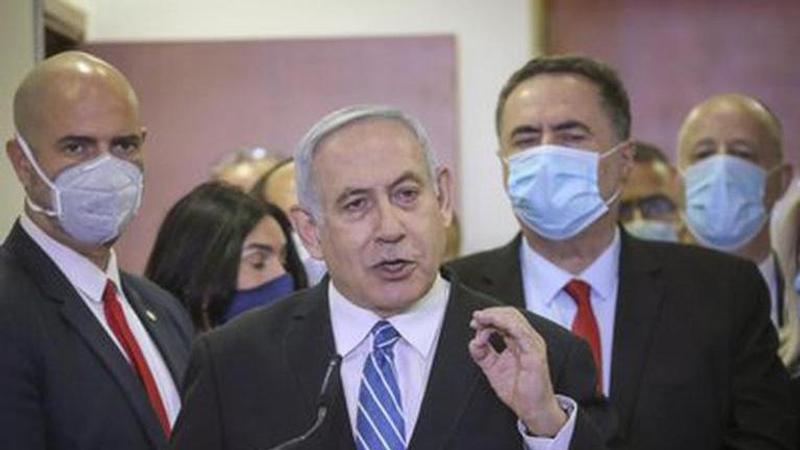Published 16:49 IST, June 21st 2020
Israeli Prime Minister Netanyahu comments on virus and Iran
Israeli Prime Minister Benjamin Netanyahu said on Sunday his government will discuss possible steps to halt the spread of the coronavirus after the country saw a major uptick in confirmed cases in recent days, warning that "we need to flatten the curve now."

Advertisement
Israeli Prime Minister Benjamin Netanyahu said on Sunday his government will discuss possible steps to halt the spread of the coronavirus after the country saw a major uptick in confirmed cases in recent days, warning that "we need to flatten the curve now."
Israel has over 20,000 confirmed cases of coronavirus, with the number of new cases increasing by more than 300 in recent days.
At least 305 Israelis have died from COVID-19 since the beginning of the outbreak in March.
"Tomorrow I will convene the Corona Cabinet and we'll discuss necessary steps for stopping the spread of the pandemic," Netanyahu said at the start of the weekly Cabinet meeting in Jerusalem.
"If we don't change immediately our behaviour regarding wearing masks and keeping distance we will bring upon ourselves, against our will, a return to lockdowns," he said.
Netanyahu added that every effort was being made to develop a vaccine.
He also issued a condemnation of Iran, saying it was "lying to the international community in order to obtain nuclear weapons."
Earlier this week, International Atomic Energy Agency (IAEA) Director General Rafael Grossi reiterated concerns that for more than four months Iran had denied his inspectors access to two locations to investigate possible undeclared nuclear material and nuclear-related activities.
Activities at the sites are thought to have been from the early 2000s, before Iran signed the 2015 nuclear deal with world powers.
Iran maintains the IAEA has no legal basis to inspect them.
The agency has said that Iran continues to provide access to sites covered by the nuclear deal, known as the Joint Comprehensive Plan of Action, or JCPOA.
Iran's representative to the IAEA, Kazem Gharibabadi, said his country rejected the resolution.
16:49 IST, June 21st 2020




